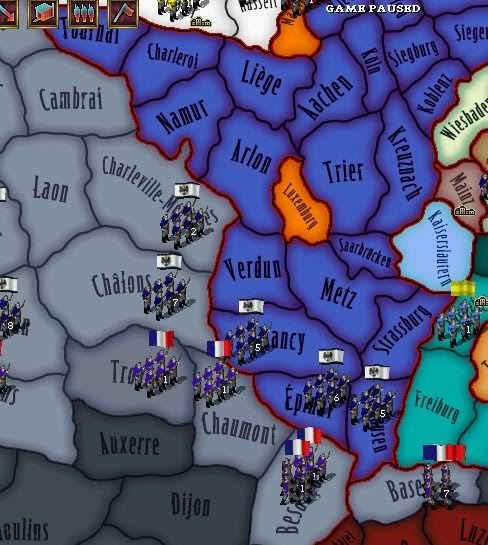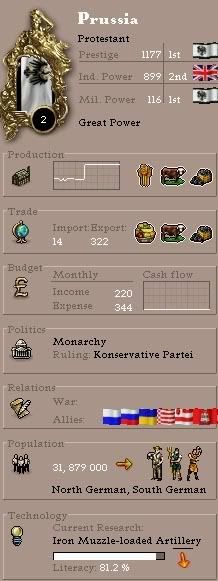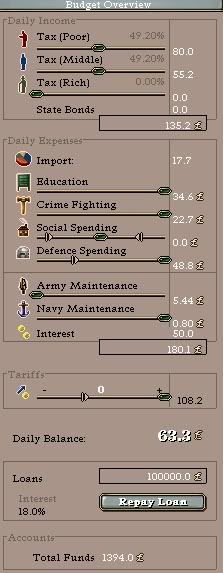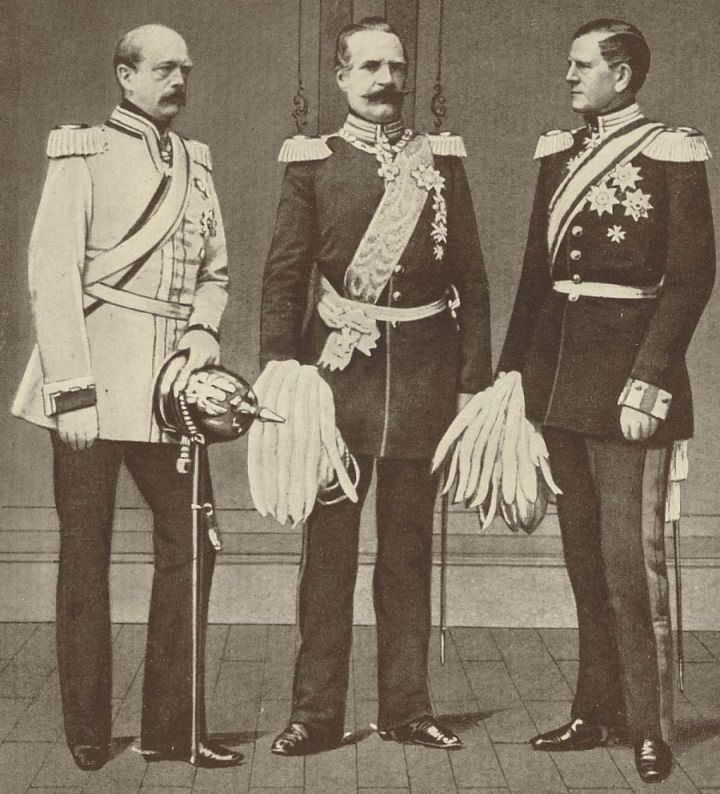Part XIII: The Crimean War continues
In 1853 the war limited itself to Northern France and along the shores of the Black Sea, with the allied forces of France, Britain and Turkey sustaining heavy losses. The British hopes of capturing Crimea and thus taking Russia’s primary source of coal and iron had been dashed as French troops were occupied in Northern France against more as 1,5 million Prussian troops. The Turks were slowly being pushed back in the Balkan with Russian troops occupying the eastern part of Bulgaria, but in Caucasia the Turks held the line against a numerical superior enemy. In Asia fighting continued between Prussian and British troops in Burma.
On the 4th of January 1854, Prussian troops engaged British troops, who had previously been driven back from Pegu, near the village of Sittwe. Although the British troops were experienced with fighting in the jungle, the Prussian troops quickly ended their resistance and drove them south towards Gyaong and thereby cutting them off from British supply lines. As British troops were still occupied in China, the Prussian colonial forces could seize this opportunity to take all of British Burma before August. With no additional troops in India left, Calcutta lay vulnerable and awaiting a Prussian siege which would not come.
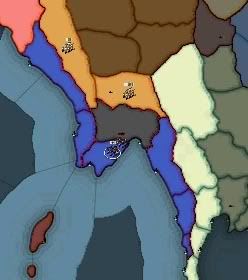
Occupied British Burma
The long awaited reserves finally arrived in Saarbrücken in February, after which Glogau launched a second assault on Metz. This time the French were defeated within 2 days and Lorraine-Alsace lay wide open to a Prussian invasion. Even before Metz was firmly under Prussian control, the offensive continued towards Nancy and Mülhausen. In Nancy a small skirmish between Prussian and French troops took place, but nonetheless the city fell by April and when Strasbourg fell within weeks, the first siege of Paris began.
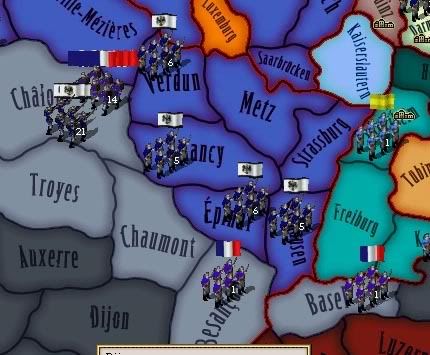
Situation of the Eastern part of the Front
On the 30th of May 130,000 Prussian troops engaged 100,000 French troops at the outskirts of Paris. Heavy fighting ensued, causing heavy casualties on both sides. Initially the Prussians seemed to be winning this battle, however, almost 100,000 additional French troops turned the tide, and by the end of June Prussian troops withdrew to Amiens and Laon. Around the same time the First Battle of Paris had started Prussian troops attacked the city of Châlons in the hope to cause confusion amongst the French. Nearly 200,000 Prussian troops attacked the heavily fortified French city on 23rd of April. Just as in Paris, the numerous French soldiers took the stand and defended the city with great valor and bravery. It didn’t stop the Prussians however, and the city fell on the first of July.
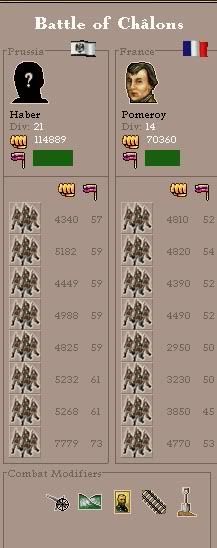
The Battle of Chalons
In August a second attempt to take Paris was launched, but just as the previous attack the Prussians failed to take the city. Casualties on both sides were rising and the home front was getting frustrated with the Prussian army unable to take Paris. It was clear the war was lost for the allied forces, but neither Prussia, Russia or France wanted to admit the war was over. The decision was made to launch one final attack on the city of Paris, but this time the main charge wouldn’t come from Amiens or Laon, but from a village just south of Paris: Melun.
August saw the movement of over 200,000 Prussian troops from Châlons to the small village along the Seine. Melun would prove to be an excellent base of operation, but the final assault on Paris had to wait. A rogue general, fed up with the lack of progress on the west, launched an assault from the north on the city. His attack was repulsed and would have dire consequences for the Prussians in the North-West of France. The French pursued them towards the city of Amiens and they were met with heavy resistance from the Prussians soldiers, who were still recovering from the Third Battle of Paris. The two sides fought for nearly a month, when the Prussians were forced to retreat and had to abandon Amiens. The city fell to the French on the 21st of November 1854.



